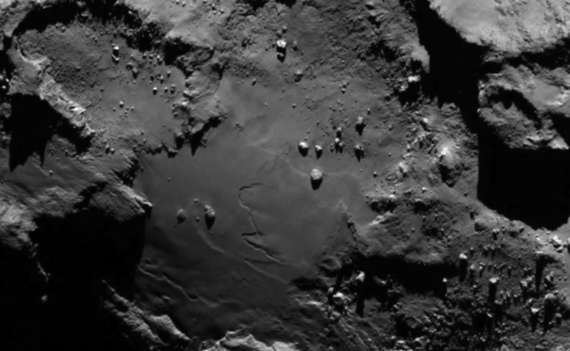Seven days; lots of science in the news. Here's our roundup of this week's most notable and quotable items:
The European Space Agency's Rosetta spacecraft went into orbit around Comet 67P/Churyumov-Gerasimenko. Inspired by the Japanese art of origami, Harvard students made a robot that starts as a flat sheet and folds itself into a four-limbed device. Neanderthals feasted on barbecued pigeon.
Mercury levels in the top 100 meters of the ocean have tripled since the Industrial Revolution. Tar pits were revealed to be home to tiny organisms that might be used to help clean up oil spills. Arizona ranks as the top U.S. state for solar energy capacity, with 275 watts per person generated in 2013. Newly released photos of Jupiter's moon Io show one of the most powerful volcanic eruptions viewed beyond Earth.
Several species of glow-in-the-dark shark have specially adapted eyes that allow them to see more light than other sharks. The U.S. Food and Drug Administration has authorized the use of a new Ebola virus test, but a vaccine for the virus is not expected to be approved until 2015. A new test for the brain disorder Creutzfeldt-Jakob disease may be administered with a nasal swab. Hawaii is expecting its first hurricane landfall in 22 years; this may mark the first time a hurricane has struck the Big Island in recorded history.
Water always flows downhill--except when it's poured on a new material invented by MIT researchers, which is coated with minute metal bristles. The small projections can move in response to a magnetic field and brush water in any direction, even against gravity. IBM unveiled a computer chip it says is modeled after the processing design of the human brain. There may not be a link between a vaccine for pandemic swine flu and narcolepsy after all. Some types of supernovas may leave behind the shattered remnants of "zombie stars."
___________'This Week In Science' is presented by the World Science Festival, an annual celebration of science in New York City. To see engaging scientific conversations, learn about new discoveries and more, check out the Festival website.
